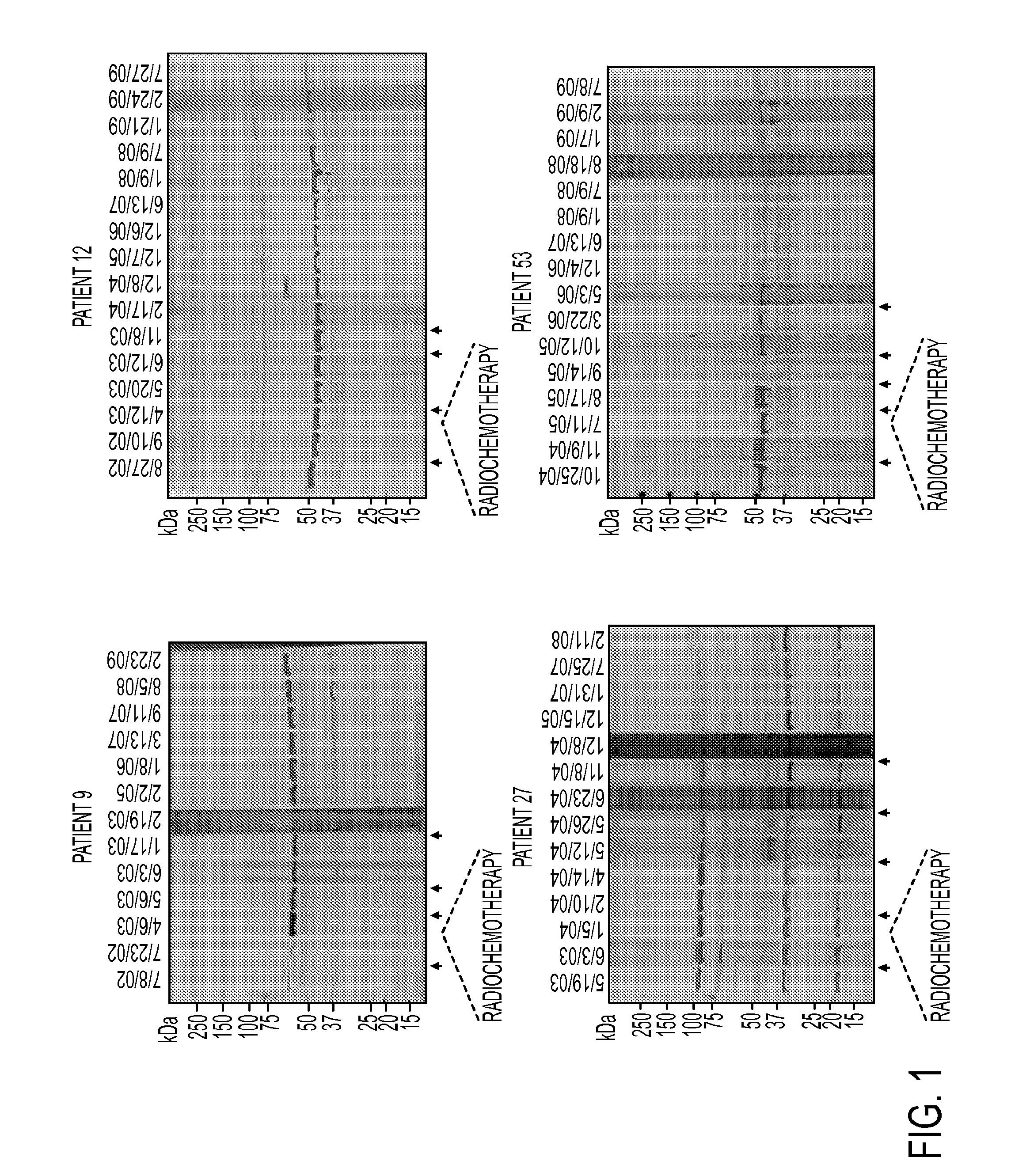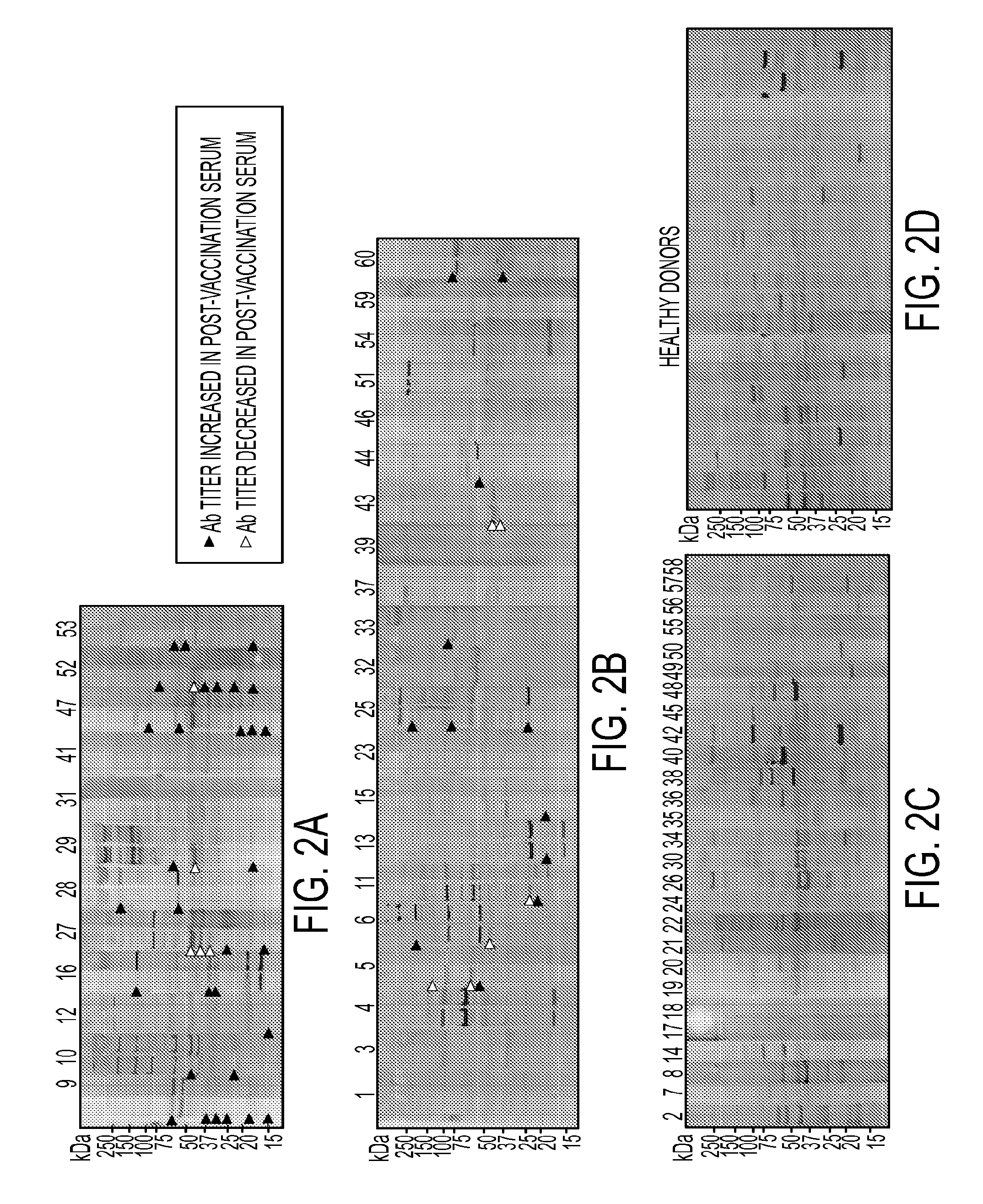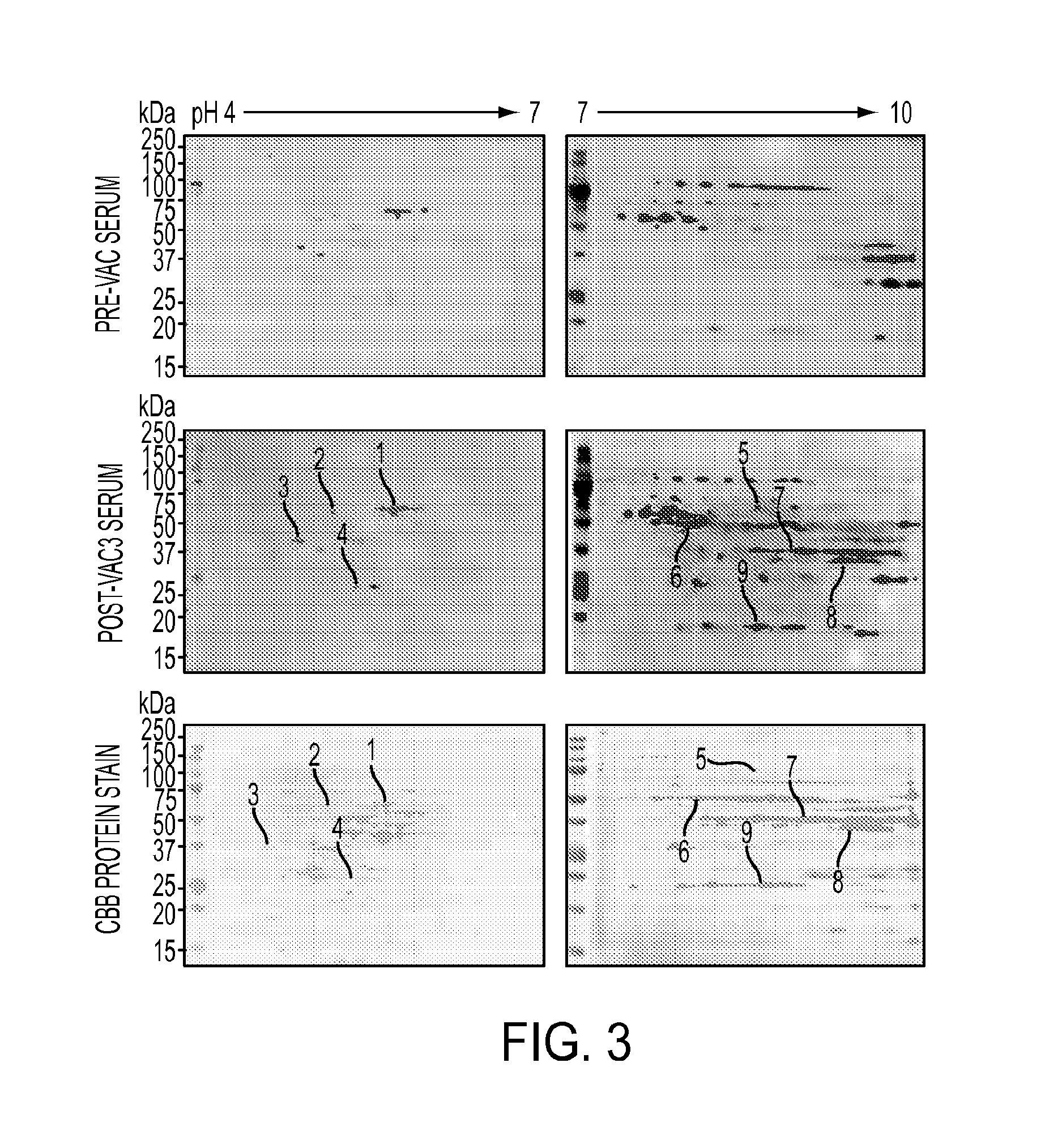Annexin A2 as Immunological Target
a technology of immunological target and annexexin, which is applied in the field of tumor immunology, can solve the problems of poor survival rate, drug targeting these molecular abnormalities has not yet translated into improved clinical response, and little is known about the molecular mechanisms underlying early invasion and metastasis, and achieves the effect of inhibiting
- Summary
- Abstract
- Description
- Claims
- Application Information
AI Technical Summary
Benefits of technology
Problems solved by technology
Method used
Image
Examples
example 1
Antibody Response Signature in Vaccinated Patients
[0107]Here we report on antibody response in serum samples collected before and after vaccination which is specific for proteins extracted from the tumor vaccine lines. We found that not only did most of the patients who survived longer than 3 years develop an antibody response in their post-vaccination sera, but they showed the highest number of antibodies specific for a variety of proteins of different sizes. Using a proteomics approach, we identified a panel of proteins for which specific antibody titers were elevated in the post-vaccination serum samples, which translated to a favorable clinical outcome.
[0108]Study design and clinical evaluation of a phase II trial on an allogeneic GM-CSF secreting pancreatic tumor vaccine were published elsewhere (28). Briefly, 60 patients with stage 1, 2, and 3 resected PDA were enrolled. First vaccination was administered 8 weeks after pancreaticoduodenectomy and followed 1 month later by a 6-...
example 2
Antibody Response Correlates with Favorable Clinical Response
[0109]The above Western blot result also showed that the highest number of antibody-reactive protein bands, though not necessary the highest antibody titer, was observed when probed with sera collected after 3rd vaccination (FIG. 1). To expand the analysis to all 60 patients, serum samples collected at pre-vaccination (60 patients) and post-3rd vaccination (33 out of 60 patients) were tested for vaccine-specific antibody response using Western blot analysis. Serum samples from 22 healthy donors were also included as controls. Sixty vaccinated patients were divided into 3 groups based on survival. Group A (n=12) are patients who completed all vaccine schedule and survived greater than 3 years at the end of this trial. Majority of patients in this group developed antibody response in their post-vaccination sera as demonstrated by either appearance of new antibody activities or an elevated titer of existing antibody activitie...
example 3
Identification of Antibody-Reactive Proteins by Proteomics
[0110]We used a serological proteomics approach to identify the antigens that could be recognized by antibodies detected in serum samples from clinical responders. To reduce sample complexity and to enrich low abundant proteins, we pre-fractionated total cell lysate on a ZOOM IEF Fractionator (Invitrogen) into 2 fractions which contained proteins with isoelectric points (pI) from pH 3-6 and from pH 7-10, respectively. Each fraction was further subject to 2-dimensional electrophoresis (2-DE) and immunoblotting analysis with pre-versus post (3rd vaccine)-vaccination serum samples from the 4 long-term survivors (patients 9, 12, 27 and 53). Corresponding antibody-reactive protein spots on Coomassie bright blue (CBB)-stained gels were excised and digested with trypsin. Resulting peptides were analyzed by matrix-assisted laser desorption ionization time-of-flight (MALDI-TOF) mass spectrometry. A representative result from patient #...
PUM
| Property | Measurement | Unit |
|---|---|---|
| concentration | aaaaa | aaaaa |
| median survival time | aaaaa | aaaaa |
| median survival time | aaaaa | aaaaa |
Abstract
Description
Claims
Application Information
 Login to View More
Login to View More - R&D
- Intellectual Property
- Life Sciences
- Materials
- Tech Scout
- Unparalleled Data Quality
- Higher Quality Content
- 60% Fewer Hallucinations
Browse by: Latest US Patents, China's latest patents, Technical Efficacy Thesaurus, Application Domain, Technology Topic, Popular Technical Reports.
© 2025 PatSnap. All rights reserved.Legal|Privacy policy|Modern Slavery Act Transparency Statement|Sitemap|About US| Contact US: help@patsnap.com



